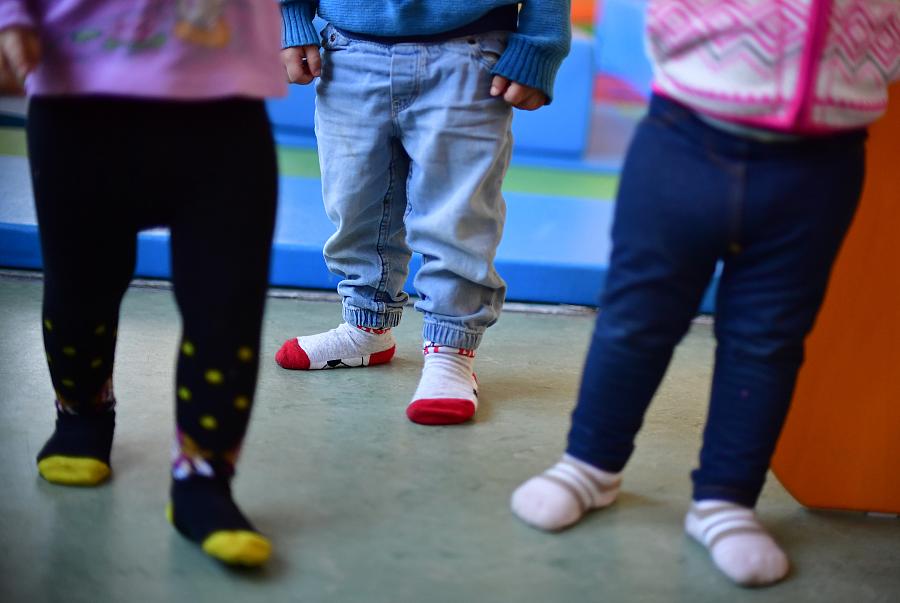Breaking down California's latest plans to go big on early childhood

(Photo: Tobias Schwarz/AFP/Getty Images)
California Gov. Gavin Newsom unveiled his revised 2019-2020 budget proposal Thursday, setting forth an agenda that uses the state’s tax windfall to bolster early childhood programs and cut costs for struggling families. Newson’s budget prioritizes early childhood and breaks ground among states on several key policies, such as trauma screenings and paid parental leave.
The emphasis on early childhood is essential for the state, advocates say, pointing to the high percentage of poverty (one in four) among California children.
“Providing support and reducing burdens to families with children from the very start are essential steps to improving their life trajectories and trajectory of California’s future,” said Mike Odeh, director of health policy for Oakland-based nonprofit Children Now.
As the negotiations kick off in the state legislature, here are several key early childhood measures to follow — and the research behind them.
The big idea: The budget proposes two additional weeks of paid family leave, which would bring the total to eight weeks of partial pay for each parent. The cost has not yet been revealed.
What’s behind this: California was the first state to create such a program and has been heralded as a model for the rest of the country. Having time to bond with a loving caregiver “has lifelong benefits for a child’s health and well-being,” according to Moira Kenney, executive director of First 5 Association (the L.A. First5 helps fund the Children's Health Matters blog). In addition, research has shown that paid leave can lead to lower infant mortality rates, higher immunization rates and helps support breastfeeding.
The big idea: The updated budget doubles the proposed low-income tax credit for families with children under 6 from $500 to $1,000. The proposal could cost more than a half-billion dollars.
What’s behind this: Children’s health advocates say the tax credit can help financially-strapped families with young children pay for food, rent and child care. They say the extra money can help reduce child poverty and improve a family’s overall economic security. That’s important for health, too, since research has connected economic instability and food insecurity with poorer child outcomes. And as this blog recently noted, there’s also research linking poverty and child neglect. Newsom’s proposed tax credit targets families with children under age 6, a critical period for brain development.
The big idea: The earlier budget allocated money for developmental and trauma screenings for Medi-Cal beneficiaries, and made California a leader nationwide. Medi-Cal is California’s Medicaid program. This updated budget adds about $60 million over three years to train providers who will administer the screenings.
What’s behind this: The move builds on the groundbreaking research of California’s first surgeon general, Dr. Nadine Burke Harris. She’s been on at the forefront of connecting adverse childhood experiences and toxic stress with serious health problems later in life, including diabetes, lung cancer and heart disease.
Screening children within the pediatric setting allows providers to identify risks early and gives them the opportunity to improve outcomes, said Dr. Ariane Marie-Mitchell, a preventive medicine physician and assistant professor at Loma Linda University in an earlier interview with the Center for Health Journalism.
The big idea: Newsom is proposing removing the sales tax on diapers and menstrual products like tampons for two years.
What’s behind this: In a press conference earlier this week, Newsom said that diaper spending “hits the pocketbook for families.” Low-income families with young children can spend as much as 14 percent of their after-tax income on diapers, he said.
That economic hardship — and the parental stress and anxiety it can bring — has been well documented in publications like The Atlantic and The Tampa Bay Times, as well as studies like this one in Pediatrics. Leaving a diaper on for too long can not only lead to rashes and infections for the child but also undermine the mother’s mental health and ability to parent. If successful, California would join a handful of states that have passed similar measures for diapers and even more that have removed sales tax on menstrual products.

